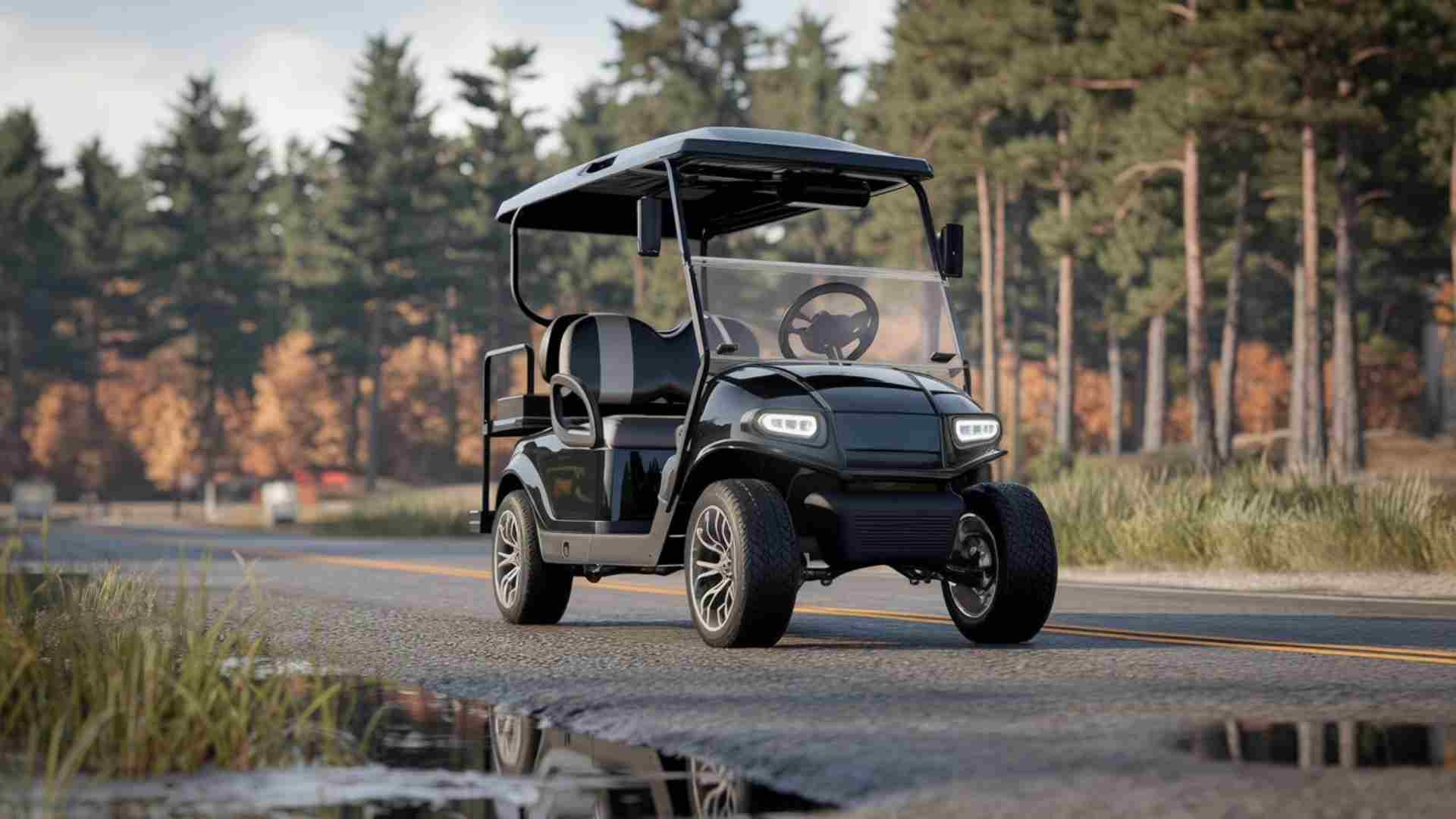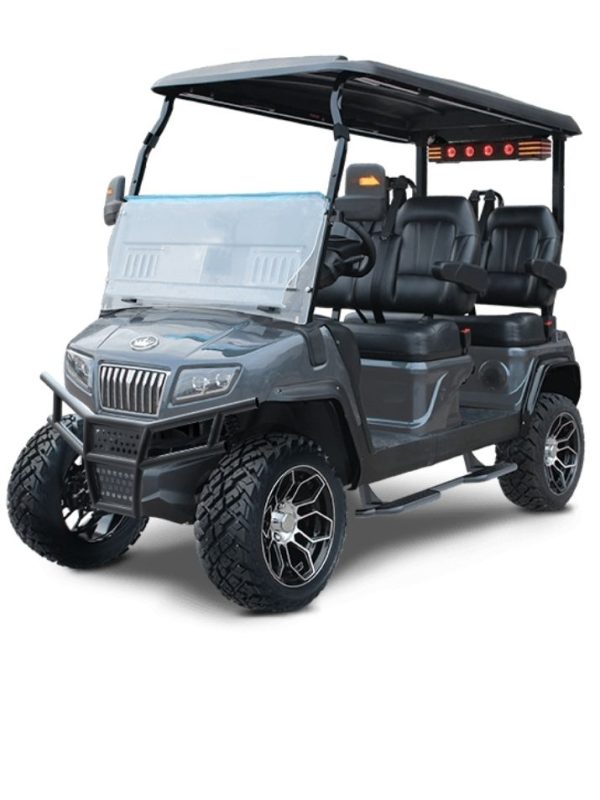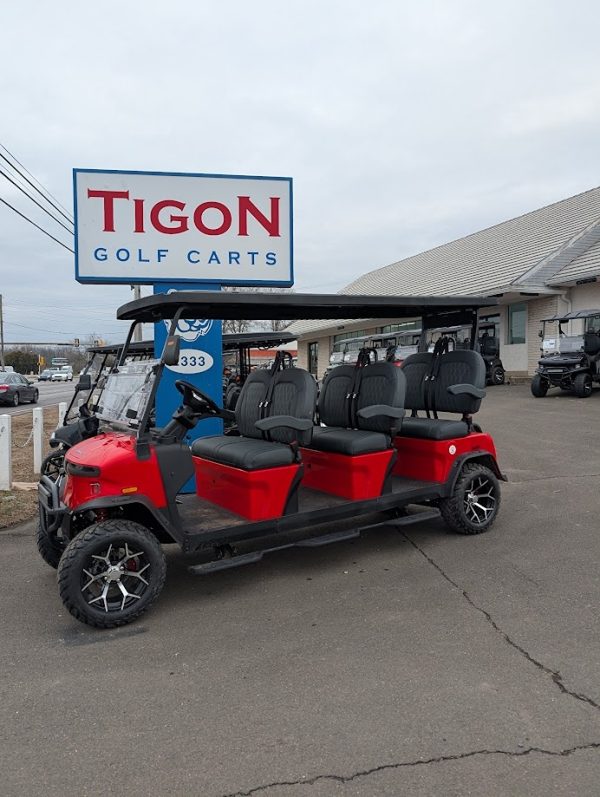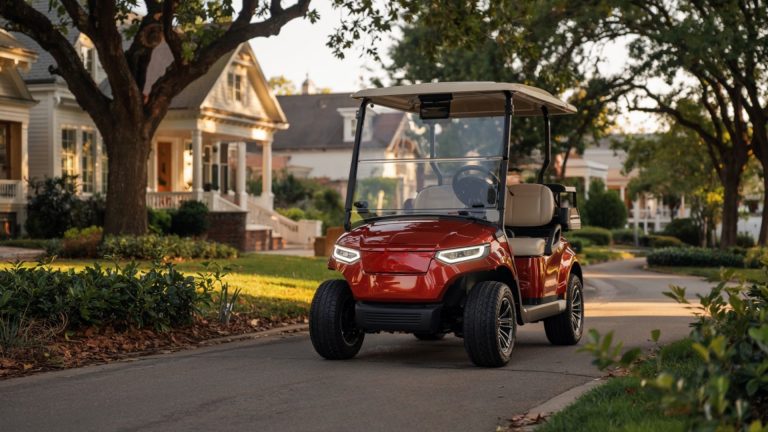
New Jersey Street Legal Golf Cart / LSV Recommendations
Street Legal Golf Carts in New Jersey
Navigating the process of making a golf cart street legal in New Jersey can be a bit tricky. We’ll walk you through the essential information to get your golf cart on the road.
Registration Requirements
In New Jersey, registering your golf cart is mandatory. However, unlike other states, New Jersey’s vehicle code does not make it easy to register a golf cart as a regular passenger vehicle. New Jersey categorizes vehicles into autocycles, motorcycles, and Low-Speed Vehicles (LSVs), effectively disqualifying mainstream golf carts from being registered as street legal directly within the state.
To register a golf cart, the following steps are necessary:
- Title and VIN inspection: Ensure your golf cart has a valid title and Vehicle Identification Number (VIN) inspection.
- Complete the necessary forms: Fill out the appropriate registration form at the New Jersey Motor Vehicle Commission (MVC).
- Pay registration fees: Fees vary based on the type and specifications of the golf cart.
For those looking to make their golf cart street legal, one viable workaround is registering the golf cart in another state that allows such use, such as Pennsylvania or Delaware. Once registered out-of-state, you can obtain an out-of-state registration, title, and license plate.
Licensing Exemptions for Operators
When it comes to operating golf carts, New Jersey has specific regulations that provide some exemptions:
- No permit or license required: In New Jersey, operators do not need a permit or license to operate golf carts. This also applies to LSVs in many cases.
- Under 18 exemptions: Operators under 18 years old are exempt from the safety education course if they use the golf cart or LSV at licensed special events or for farming activities.
- Agricultural license: An agricultural license (Class G) allows individuals between 16 and 17 years old to operate vehicles registered for farm use during farming-related activities. A basic driver license (Class D) can also be used for this purpose.
For those navigating the intricacies of golf cart regulations in New Jersey, understanding these exemptions can make the process smoother. For further details on making golf carts street legal, refer to our section on registering in other states.
By being aware of the registration requirements and licensing exemptions, we can better prepare for the road ahead with our street legal golf carts in New Jersey. For more information on related topics, visit our articles on New Jersey street legal LSV and street legal motorcycles New Jersey.
Golf Carts and New Jersey Regulations
Understanding the regulations for golf carts in New Jersey is crucial for ensuring compliance and legal operation of your vehicle. Here, we delve into the various vehicle categories and the registration process for golf carts.
Vehicle Categories
In New Jersey, the vehicle code categorizes vehicles into specific types, each with its own set of regulations. The primary categories relevant to golf carts include autocycles, motorcycles, and Low-Speed Vehicles (LSVs). Unfortunately, mainstream golf carts do not fit neatly into these categories, making it impossible to register them as regular passenger vehicles in the state.
- Autocycles: Three-wheeled vehicles that are categorized separately from motorcycles and cars.
- Motorcycles: Two-wheeled motor vehicles that require specific licensing and registration.
- Low-Speed Vehicles (LSVs): Four-wheeled vehicles that typically travel at speeds of 20-25 mph and are subject to different regulations compared to golf carts.
Since golf carts do not align with these classifications, it can be challenging to make them street legal directly within New Jersey. However, there are alternative methods, such as registering in other states, to achieve street legal status.
Registration Process and Expiration
While it is not possible to register a golf cart as street legal in New Jersey, understanding the general registration process for other similar vehicles can be helpful. Here are some key points regarding the registration requirements for all-terrain vehicles (ATVs) and snowmobiles, which share some similarities with golf carts:
- ATVs and Snowmobiles: Both types of vehicles do not require a permit or license to operate but must be registered. The registration expiration date for ATVs, dirt bikes, and snowmobiles is September 30th each year.
- Safety Education Exemption: Operators under 18 years old are exempt from the safety education course if they use the vehicle only at licensed special events or for farming activities.
To navigate the registration process more effectively, it is essential to be aware of the necessary documentation and fees. Here’s a general outline of the registration requirements:
| Vehicle Type | Documentation Needed | Registration Fee | Expiration Date |
|---|---|---|---|
| ATV | Proof of ownership, Identification | Varies | September 30th |
| Snowmobile | Proof of ownership, Identification | Varies | September 30th |
For those looking to make their golf carts street legal, exploring out-of-state registration options can be a viable solution. States like Pennsylvania and Delaware offer registration processes that allow golf carts to be legally operated on public roads. By obtaining an out-of-state registration, title, and license plate, you can ensure your golf cart meets the necessary legal requirements for street use.
For more information on making your golf cart street legal, check out our related articles on New Jersey street legal LSV and New Jersey street legal MSV. These resources provide valuable insights into navigating the complex regulations and achieving street legal status for your golf cart in New Jersey.
Making Golf Carts Street Legal
Navigating the world of making golf carts street legal in New Jersey can seem daunting, but we’re here to break it down for you. While New Jersey doesn’t allow for golf carts to be registered for on-road use directly, there are workarounds that can make your golf cart street legal by registering it in other states.
Registering in Other States
New Jersey’s regulations make it impossible to register a golf cart as street legal within the state itself. However, you can register your golf cart in states like Pennsylvania or Delaware, where the laws are more lenient regarding golf carts on public roads.
Here’s how it works:
- Choose a State: Select a state that allows street legal golf cart registrations, such as Pennsylvania or Delaware.
- Meet State Requirements: Ensure your golf cart meets all the necessary equipment requirements for the chosen state.
- Submit Paperwork: Complete the registration process by submitting the required paperwork, including proof of ownership and any necessary inspections.
Once registered in one of these states, your golf cart will be recognized as street legal in New Jersey through reciprocity agreements between states.
Out-of-State Registration Process
The process of obtaining an out-of-state registration for your golf cart involves several steps. Here’s a quick guide to help you navigate this:
- Gather Required Documents: You’ll need the title, bill of sale, and proof of insurance for your golf cart.
- Complete State-Specific Forms: Fill out the specific registration forms required by the state you’re registering in. This may include vehicle identification number (VIN) verification forms.
- Install Necessary Equipment: Ensure your golf cart has all the required equipment, such as lighting systems and mirrors, for street use in the state you’re registering in.
- Submit Application: Mail or submit your application in person to the relevant state department. Include any fees required for processing.
- Receive Registration and Plates: Once processed, you’ll receive your out-of-state registration and license plates.
| State | Required Equipment | Processing Time | Approximate Cost |
|---|---|---|---|
| Pennsylvania | Lights, Mirrors, Horn | 2-4 weeks | $100 – $200 |
| Delaware | Lights, Mirrors, Horn | 1-3 weeks | $50 – $150 |
These steps can make your golf cart street legal in New Jersey, allowing you to enjoy the freedom of driving on public roads, highways, and city streets.
For additional information, check out our articles on street legal requirements in New Jersey and New Jersey street legal MSVs.
Necessary Golf Cart Equipment
To ensure our golf carts are street legal in New Jersey, it’s essential to equip them with the necessary components. This section covers the required lighting systems, mirrors, and safety requirements.
Lighting Systems and Mirrors
When making golf carts street legal, proper lighting systems and mirrors are crucial. Here’s what we need:
- Headlights: Functional headlights are necessary for visibility during night driving.
- Taillights: Taillights ensure that our vehicle is visible from behind.
- Turn Signals: These are essential for indicating our intentions to other drivers.
- Reflectors: Reflectors enhance visibility, especially in low-light conditions.
- License Plate Light: This light makes the license plate readable at night.
- Rearview Mirrors: At least one rearview mirror is required, but side mirrors are highly recommended for better visibility.
| Component | Requirement |
|---|---|
| Headlights | Required |
| Taillights | Required |
| Turn Signals | Required |
| Reflectors | Required |
| License Plate Light | Required |
| Rearview Mirror(s) | At least one required |
For more detailed regulations on lighting systems for street legal requirements in New Jersey, be sure to check our dedicated guide.
Safety Requirements for Street Use
Beyond lighting and mirrors, several other safety requirements are necessary for operating golf carts on public roads in New Jersey:
- Seat Belts: All golf carts must be equipped with seat belts for all passengers.
- Windshield and Wipers: A windshield and functioning wipers are essential to protect you from debris and weather conditions.
- **Handbrake, and or Footbrake
GET THE GOLF CART LSV AT THE RIGHT PRICE!
Tigon Golf Carts proudly offers 0% Vehicle Financing, making it easier than ever to own your dream golf cart. With flexible payment options and competitive rates, we ensure that Upgrading or Purchasing for the first time is not only exciting but also financially feasible for our customers, allowing you to hit the road in style without breaking the bank.


















